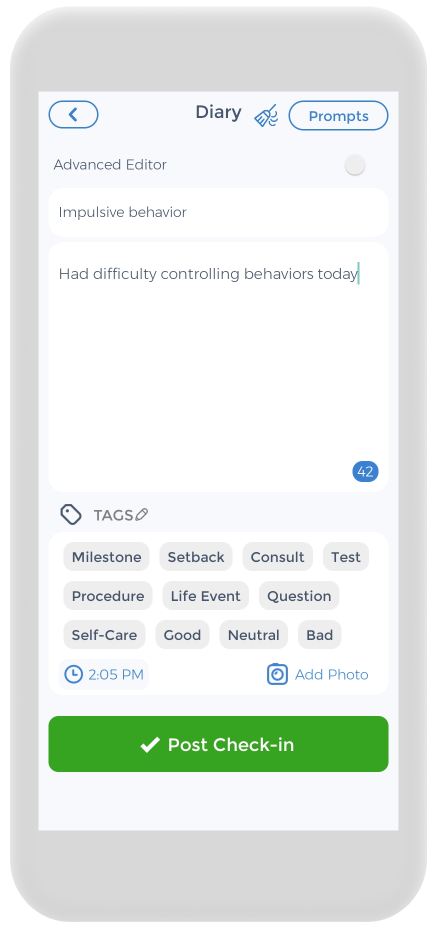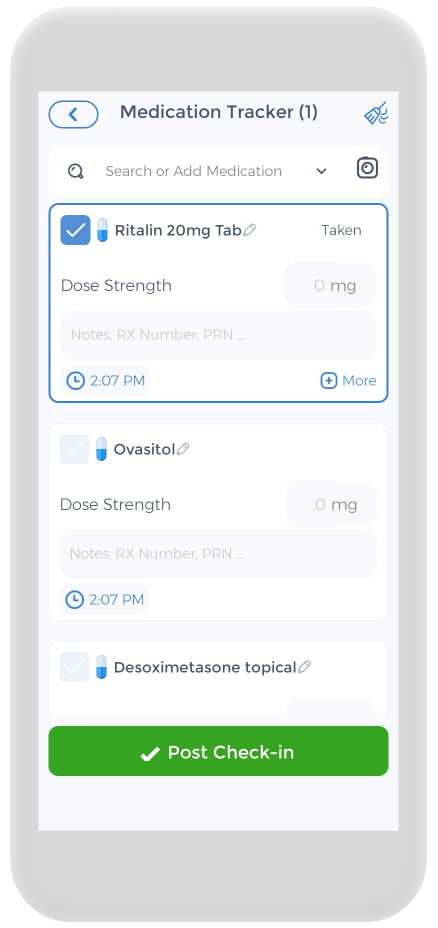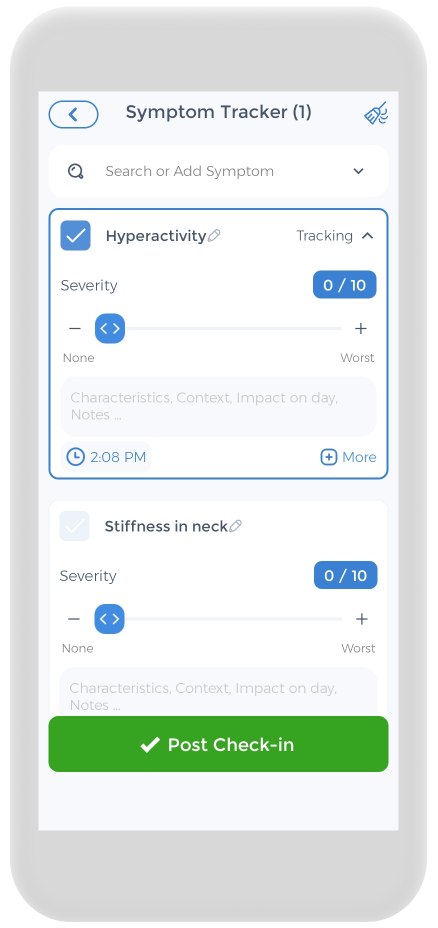
Living with Attention Deficit Hyperactivity Disorder (ADHD) is a unique experience that affects individuals in various ways. In this article, we will explore the story of someone with this disorder, from understanding the condition to personal journeys, challenges and triumphs, seeking support, and looking toward the future. By gaining insight into this complex condition, we can develop a deeper understanding and empathy for individuals living with ADHD.[1][2][3]
Understanding Attention Deficit Hyperactivity Disorder: A Brief Overview
Attention Deficit Hyperactivity Disorder (ADHD) is a neurodevelopmental disorder that affects both children and adults [1]. The core symptoms include difficulty paying attention, hyperactivity, and impulsivity. These symptoms can significantly impact academics, work, and social interactions.
It is a condition that has of course been extensively studied and researched over the years. Scientists have discovered that it is not simply a matter of a person being lazy or lacking motivation. Attention Deficit Hyperactivity Disorder is a complex condition that involves differences in brain structure and function in many adults.
There are several common misconceptions that need to be addressed. One of the most prevalent misconceptions is that it is solely a childhood disorder. While it is true that many individuals are diagnosed with ADHD during childhood, research has shown that the condition can persist into adulthood. In fact, studies have found that approximately 60% of children diagnosed with ADHD continue to experience symptoms into adulthood.
Misconception for Attention Deficit Hyperactivity Disorder
The idea that individuals with the disorder are simply lazy or lacking willpower. This belief is not only inaccurate, but it also perpetuates stigma and misunderstanding. The disorder is not a matter of willpower or laziness; it is a genuine neurological condition that affects the way the brain functions. Adult suffering from this condition often struggle with executive functioning skills, such as organizing and prioritizing tasks, which can make it challenging to stay focused and motivated.
It is important to recognize that ADHD is a highly individualized condition and not everyone has the same disorders. While there are common symptoms and characteristics, the way ADHD manifests can vary greatly from person to person. Some individuals may predominantly struggle with inattention, while others may struggle more with hyperactivity and impulsivity. Additionally, the severity of symptoms can also vary, with some individuals experiencing mild difficulties and others experiencing more significant challenges.
Fortunately, there are effective treatments and strategies available for mental health conditions to help individuals with this condition manage their symptoms and improve their quality of life. These may include medication, therapy, and lifestyle modifications. It is important for individuals with adult ADHD to work closely with mental health professionals to develop a personalized treatment plan that addresses their specific needs.[4][5][6][7]
A Personal Journey with Attention Deficit Hyperactivity Disorder
Early Signs and Diagnosis
Here is a story a friend told us about what its like:
My journey with this kind of disorder began as a child. Looking back, I now recognize the early inner struggle signs that were present even at a young age. I was often hyperactive, constantly moving and fidgeting, which made it difficult for me to sit still and concentrate on tasks. I also struggled with impulsivity, often acting with extra energy without thinking of the consequences. These behaviors set me apart from my peers and made it a constant struggle for me to fit into traditional classroom settings.
that were present even at a young age. I was often hyperactive, constantly moving and fidgeting, which made it difficult for me to sit still and concentrate on tasks. I also struggled with impulsivity, often acting with extra energy without thinking of the consequences. These behaviors set me apart from my peers and made it a constant struggle for me to fit into traditional classroom settings.
However, it wasn’t until later in my adult life that I received a formal diagnosis. The process of obtaining an accurate diagnosis involved comprehensive assessments by healthcare professionals specializing in ADHD. These assessments included interviews with both myself and my parents, as well as observations of my behavior in various settings. The diagnosis provided me with a sense of relief and validation, as it explained the challenges I had faced throughout my adult life.
Struggles in School and Work
Throughout my school journey, I faced numerous challenges. Maintaining focus and staying organized were constant struggles. It often felt overwhelming to keep up with assignments and deadlines. I would find myself easily distracted by my surroundings, losing track of long periods of time and forgetting important tasks. This led to feelings of frustration and a sense of underachievement.
As I entered the workforce, these difficulties carried over into the workplace. I found it challenging to stay on task and meet expectations. I would often become overwhelmed and distracted by multiple projects and deadlines, struggling to prioritize and manage my time effectively. It required extra effort and support from my colleagues and supervisors to help me develop strategies to stay organized and focused.
However, having this kind of condition was both a blessing and a curse. Let me explain. Despite these challenges, I have also discovered that my ADHD brings certain strengths to the table. I am often highly creative and able to think outside the box, which has allowed me to approach problems and projects from unique perspectives. I have also developed resilience and determination, as I have had to work harder than others to achieve success.
Navigating Social Relationships with ADHD
Attention Deficit Hyperactivity Disorder not only affects academic performance in school and work performance, but also interpersonal relationships [2]. The impulsivity and hyperactivity associated with ADHD can sometimes result in social misunderstandings and anxiety. I have found myself interrupting others during conversations or speaking before fully thinking through my words, which can lead to miscommunication or hurt feelings.
Learning to navigate these relationships has been an ongoing process, involving open communication and understanding from both sides. I have learned to be more aware and mindful of my impulsivity and take a moment to think before responding. I have also worked on developing active listening skills, allowing others to express themselves fully without interruption. By being open and honest about my ADHD, I have found that many people are understanding and willing to accommodate my needs.
Overall, my journey with ADHD has been filled with ups and downs. While it has presented unique challenges, it has also shaped me into the resilient and determined individual that I am today. Through self-education, therapy, and support from loved ones, I have learned to embrace my ADHD as a part of who I am and use it to my advantage. I continue to strive for personal and professional growth, finding new strategies and techniques to manage my symptoms and thrive in all aspects of my life.[8][9][10]
Living with Attention Deficit Hyperactivity Disorder: The Challenges and Triumphs
Living with Attention Deficit Hyperactivity Disorder (ADHD) is a journey filled with both challenges and triumphs. It is a condition that impacts various aspects of daily life, from simple tasks like doing dinner to organizing a schedule to remembering appointments. However, through the years, individuals with ADHD have developed coping strategies that have proven invaluable in managing day-to-day responsibilities.
One of the key strategies for managing ADHD is creating routines. By establishing a structured and predictable daily routine, individuals with ADHD can better navigate their tasks and responsibilities. This consistency helps to minimize the overwhelming feeling that often accompanies ADHD.
Utilizing reminders is another effective coping mechanism. Whether it’s setting alarms on phones or using sticky notes around the house, reminders serve as helpful prompts to stay on track and remember important tasks or appointments.
Breaking tasks into smaller, manageable steps is yet another strategy that individuals affected with ADHD have found helpful. By breaking down larger tasks into more achievable components, it becomes easier to focus and complete them without feeling overwhelmed.
Strategies for Managing ADHD
 Managing ADHD requires a holistic approach that encompasses various aspects of life. In addition to the aforementioned coping strategies, there are other lifestyle factors that can have a significant impact on ADHD symptoms.
Managing ADHD requires a holistic approach that encompasses various aspects of life. In addition to the aforementioned coping strategies, there are other lifestyle factors that can have a significant impact on ADHD symptoms.
Regular exercise has been proven to be beneficial in minimizing ADHD symptoms. Engaging in physical activity releases endorphins, which can help improve focus and reduce impulsivity. Whether it’s going for a jog, practicing yoga, or participating in team sports, finding an exercise routine that works for you can make a world of difference.
Adequate sleep is another crucial factor in managing ADHD. Lack of sleep can exacerbate symptoms such as inattention and hyperactivity. Establishing a consistent sleep schedule at night, and creating a relaxing bedtime routine can greatly improve sleep quality and overall ADHD management.
Furthermore, maintaining a healthy diet plays a significant role in managing ADHD symptoms. Certain foods, such as those rich in omega-3 fatty acids and antioxidants, have been linked to improved cognitive function and reduced hyperactivity. Incorporating foods like fatty fish, berries, and leafy greens into your diet can support overall brain health.
In addition to lifestyle strategies, utilizing tools and resources can greatly aid in managing ADHD. Timers, planners, and task lists can help individuals with ADHD prioritize their responsibilities and stay focused. These tools serve as visual reminders and keep individuals on track throughout the day.
Unexpected Benefits of Having ADHD
While living with ADHD presents unique challenges, there are also hidden strengths that come with the condition [3]. Individuals with ADHD often possess the ability to think outside the box and approach problems from unconventional angles. This creative problem-solving skill can lead to innovative solutions and unique perspectives.
Another unexpected benefit of ADHD is the ability to hyperfocus on areas of interest. When individuals with ADHD find a subject or activity that captivates their attention, they can become completely absorbed in it, often achieving a level of focus and productivity that is unparalleled. This intense focus can lead a person to great accomplishments and a deep passion for their chosen pursuits.
Embracing these strengths has empowered individuals with ADHD to turn their condition into an asset rather than a limitation. By recognizing and harnessing their unique abilities, individuals with ADHD can thrive in various areas of life, such as entrepreneurship, creative arts, and problem-solving professions.
In conclusion, we realize that living with ADHD is a complex journey that requires patience, understanding, and effective strategies. By implementing coping mechanisms, adopting a healthy lifestyle, and embracing the strengths that come with the condition, adult individuals diagnosed with ADHD can navigate their daily lives with resilience and triumph over the challenges they face.[11]
Seeking Help and Support for Attention Deficit Hyperactivity Disorder
ADHD, or Attention-Deficit/Hyperactivity Disorder, is a neurodevelopmental disorder that affects both children and adults. It is characterized by difficulties in focusing, impulsivity, and hyperactivity. Managing ADHD can be challenging, but seeking professional help is crucial in effectively managing the symptoms and improving overall well-being.
The Role of Therapy and Medication
Therapies such as cognitive-behavioral therapy (CBT) and coaching can provide valuable skills and strategies for coping with ADHD symptoms. CBT helps individuals identify and change negative thought patterns and behaviors, while coaching focuses on setting goals and developing effective strategies for time management, organization, and self-regulation.
Medication, when prescribed and monitored by healthcare professionals, can also be an effective component of treatment. Stimulant medications, such as methylphenidate (Ritalin) and amphetamines (Adderall), are commonly prescribed to help with anxiety, improve attention and reduce hyperactivity. Non-stimulant medications, such as atomoxetine (Strattera) and guanfacine (Intuniv), may also be prescribed depending on individual needs and preferences.
Building a Support Network
Living with ADHD can be challenging, but building a support network can make a significant difference in managing the condition. Friends, family, and support groups can provide understanding, encouragement, and a safe space to talk and share experiences. Connecting with others who have similar struggles can be particularly beneficial in finding a sense of belonging and support.
Support groups specifically for individuals with ADHD can provide a platform for adults to discuss challenges, share coping strategies, and receive emotional support. Online communities and forums can also be a valuable resource for connecting with others and accessing information about ADHD.
Advocacy and Awareness for ADHD
Advocacy and raising awareness about ADHD are essential in debunking misconceptions, reducing stigma, and improving access to resources. By educating others about the challenges individuals with ADHD face, we can foster a more inclusive and understanding society.
stigma, and improving access to resources. By educating others about the challenges individuals with ADHD face, we can foster a more inclusive and understanding society.
Advocacy efforts can include organizing events, participating in public speaking engagements, and sharing personal stories to shed light on the realities of living with ADHD. Additionally, advocating for policy changes and increased support in schools and workplaces can help create environments that are more accommodating and inclusive for individuals with ADHD.
Furthermore, raising awareness about ADHD can help individuals recognize the symptoms and seek appropriate help and support. By dispelling myths and providing accurate information, we can ensure that individuals with ADHD receive the understanding, treatment and assistance they need to thrive.
The Future for Individuals with ADHD
Attention Deficit Hyperactivity Disorder is a neurodevelopmental condition that affects millions of people worldwide. While individuals diagnosed with ADHD face unique challenges, ongoing research and changing perceptions offer a hopeful outlook for the future.
Advances in ADHD Research
Scientists and clinicians are delving into the intricate workings of the brain to better understand the underlying mechanisms of ADHD. Through neuroimaging techniques, such as functional magnetic resonance imaging (fMRI) and electroencephalography (EEG), researchers are uncovering valuable insights into the neural pathways involved in attention, impulsivity, and hyperactivity.
Moreover, genetics and epigenetics studies are providing crucial information about the hereditary factors that contribute to ADHD. By identifying specific genes and genetic variations associated with the condition, researchers are paving the way for personalized treatments and targeted interventions.
In addition to understanding the biological aspects of ADHD, researchers are also exploring the impact of environmental factors, such as prenatal exposure to toxins or maternal stress, on the development of the condition. This holistic approach to ADHD research is vital for developing comprehensive interventions that address both biological and environmental factors.
Furthermore, innovative interventions and treatment strategies are being developed to improve the lives of individuals with ADHD. Cognitive-behavioral therapy (CBT), for example, has shown promising results in helping individuals manage their symptoms and develop effective coping mechanisms. Additionally, advancements in medication options, more products such as extended-release formulations, are providing individuals with ADHD more flexibility and improved symptom control.
By supporting research efforts, whether through funding or participation in clinical trials, we can contribute to a brighter future for individuals with ADHD. The knowledge gained from ongoing research will pave the way for more effective treatments, personalized interventions, and a better understanding of how to support individuals with ADHD throughout their lives.
Changing Perceptions of Attention Deficit Hyperactivity Disorder
Society’s perception of Attention Deficit Hyperactivity Disorder has evolved over time, but there is still work to be done. Historically, ADHD has been stigmatized and misunderstood, leading to misconceptions and biases. However, a growing body of research and advocacy efforts are gradually changing the narrative surrounding ADHD.
Shifting public perception to view ADHD as a neurodevelopmental difference rather than a flaw is essential. Individuals with ADHD possess unique strengths, such as creativity, hyperfocus, and out-of-the-box thinking, which can be harnessed and celebrated. By emphasizing these strengths and promoting acceptance, we can create a more inclusive society for individuals with ADHD.
Education and awareness play a crucial role in dispelling myths and misconceptions about ADHD. By providing accurate and up-to-date information about the condition, we can foster understanding and empathy. Schools, workplaces, and communities can implement strategies to accommodate the specific needs of individuals with ADHD, creating an environment that supports their success.
Furthermore, the media plays a significant role in shaping public perception. By portraying individuals with ADHD in a positive light and showcasing their achievements, we can challenge stereotypes and inspire others. Increased representation of individuals with ADHD in various fields, such as arts, sciences, and sports, can help break down barriers and demonstrate that ADHD does not define one’s potential.
By collectively working towards changing perceptions and fostering a more inclusive society, we can empower individuals with ADHD to embrace their uniqueness and thrive in all aspects of life.[12][13][14][15]
Using the CareClinic App to Help with Attention Deficit Hyperactivity Disorder
Keeping track of your mental health condition and medications is crucial. and the CareClinic app can help with that. You can use the app as your clinical journal. Just go to the diary section of the app and enter your daily symptoms, medications, and other triggers, as they occur. There are also specific sections on the app to track each of these. For example, if you have ADHD symptoms, you can track down symptoms you have on a daily basis.
The app also has a medication section where you can precisely track the doses of the pills you are taking and receive reminders. Whether you are taking stimulant medication or herbs for ADHD or anxiety, we know how difficult but important keeping track of your medications is, so we hope to make it as easy and streamlined as possible. This way, you can take your medications and experience consistent relief.
A Hopeful Outlook for Those with Attention Deficit Hyperactivity Disorder
With effective strategies and support systems in place, individuals with ADHD can thrive in various aspects of their lives. Education plays a pivotal role in empowering individuals. By implementing specialized teaching techniques and accommodations, educators can help students with ADHD reach their full potential. Providing individualized learning plans, incorporating multisensory activities, and promoting self-advocacy skills can make a significant difference in their academic success.
Furthermore, the support of family and friends is invaluable. Building strong support systems that understand and validate the experiences can provide a sense of belonging and emotional well-being. Open communication, empathy, and patience are key in nurturing these relationships.
Additionally, self-care practices and lifestyle adjustments can greatly enhance the overall well-being. Regular exercise, sufficient sleep, and a balanced diet can positively impact attention, impulsivity, and mood regulation. Mindfulness techniques, such as meditation and deep breathing exercises, can also help manage stress, depression and anxiety and improve focus.
By celebrating differences and embracing individual strengths, we can cultivate a world that recognizes and values the contributions of all individuals, including those with ADHD. Advocacy efforts, support groups, and community initiatives are essential in creating an environment that uplifts and empowers individuals with ADHD.
Living with Attention Deficit Hyperactivity Disorder is not without its difficulties, but with understanding, support, and a positive outlook, individuals with ADHD can lead fulfilling lives. Let us continue to advocate for awareness, education, and acceptance, creating a society that empowers and uplifts those with ADHD.
⬇️ Download the CareClinic App
Sources
- Centers for Disease Control and Prevention. (2021). Attention-deficit/hyperactivity disorder (ADHD). Retrieved from https://www.cdc.gov/ncbddd/adhd/data.html
- Klarity (2023). ADHD Tools For Organization & Time Management https://www.klarityadhd.com/post/adhd-tools/
- MayoClinic (2023). Adult attention-deficit/hyperactivity disorder (ADHD). https://www.mayoclinic.org/diseases-conditions/adult-adhd/symptoms-causes/syc-20350878
- National Institute of Mental Health. (2021). Attention-deficit/hyperactivity disorder. Retrieved from https://www.nimh.nih.gov/health/topics/attention-deficit-hyperactivity-disorder-adhd/index.shtml
References
- “Silver linings of ADHD: a thematic analysis of adults’ positive experiences with living with ADHD – PMC”. https://pmc.ncbi.nlm.nih.gov/articles/PMC10551976/
- “ADHD Adults: "What It Feels Like to Have ADHD" | Psychology Today”. https://www.psychologytoday.com/us/blog/may-i-have-your-attention/201311/adhd-adults-what-it-feels-have-adhd
- “My Mental Illness Diagnosis Was a Saving Grace”. https://time.com/4401509/mental-illness-adhd-depression-anxiety/
- “Why ADHD Isn't Due to Bad Parenting”. https://time.com/4671981/adhd-hyperactivity-disorder/
- “Adult attention deficit hyperactivity disorder”. https://en.wikipedia.org/wiki/Adult_attention_deficit_hyperactivity_disorder
- “How Is the ADHD Brain Different? – Child Mind Institute”. https://childmind.org/article/how-is-the-adhd-brain-different/
- “Attention Deficit Hyperactivity Disorder (ADHD) Causes and Diagnosis in Adults: A Review – PMC”. https://www.ncbi.nlm.nih.gov/pmc/articles/PMC10733572/
- “Symptoms of ADHD | Attention-Deficit / Hyperactivity Disorder (ADHD) | CDC”. https://www.cdc.gov/adhd/signs-symptoms/index.html/
- “ADHD in Adults: 4 Things to Know – National Institute of Mental Health (NIMH)”. https://www.nimh.nih.gov/health/publications/adhd-what-you-need-to-know
- “Relationships & Social Skills – CHADD”. https://chadd.org/for-adults/relationships-social-skills/
- “The Superpowers of ADHD – Mind Health”. https://www.mindhealthgroup.com/blog/superpowers-adhd/
- “Large-Scale Brain Systems in ADHD: Beyond the Prefrontal-Striatal Model – PMC”. https://pmc.ncbi.nlm.nih.gov/articles/PMC3272832/
- “Attention deficit hyperactivity disorder”. https://en.wikipedia.org/wiki/Attention_deficit_hyperactivity_disorder
- “Maternal Stress during Pregnancy, ADHD Symptomatology in Children and Genotype: Gene-Environment Interaction – PMC”. https://pmc.ncbi.nlm.nih.gov/articles/PMC3269259/
- “Management of attention deficit hyperactivity disorder”. https://en.wikipedia.org/wiki/Management_of_attention_deficit_hyperactivity_disorder
- “A systematic review of the effectiveness of mobile apps for monitoring and management of mental health symptoms or disorders – PubMed”. https://pubmed.ncbi.nlm.nih.gov/30347316/


